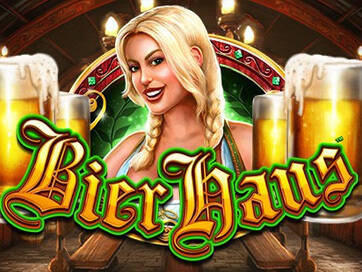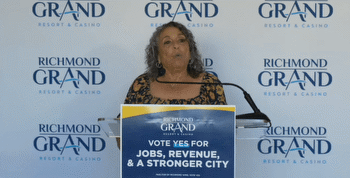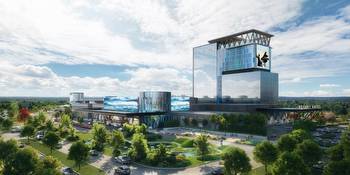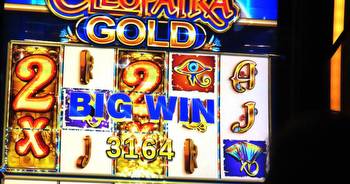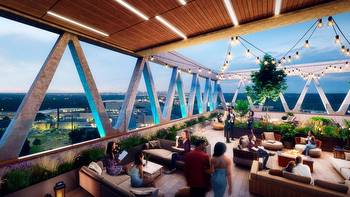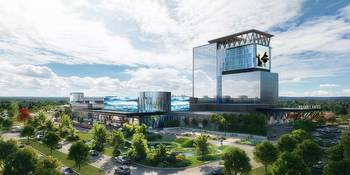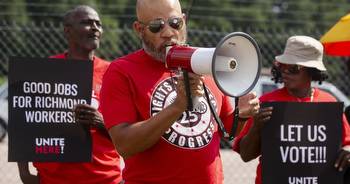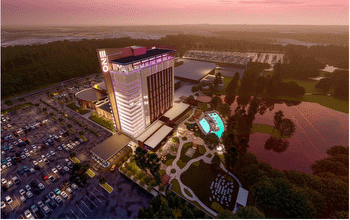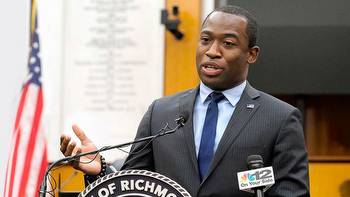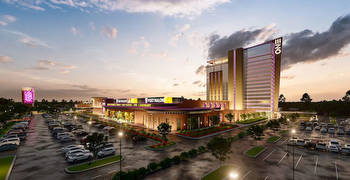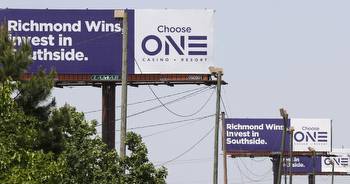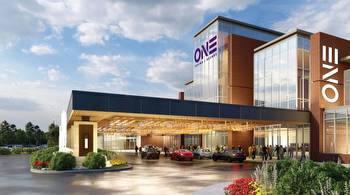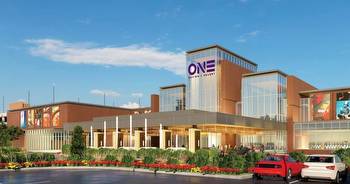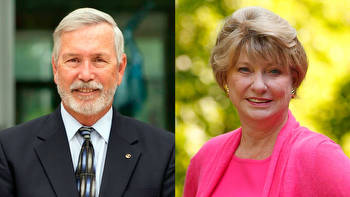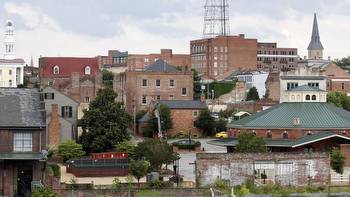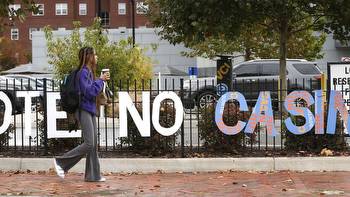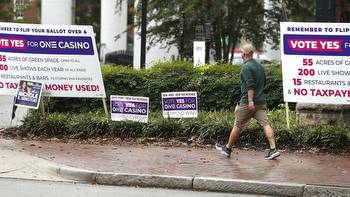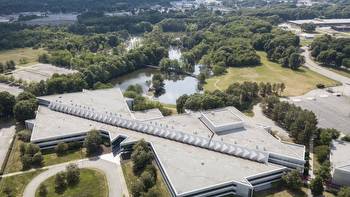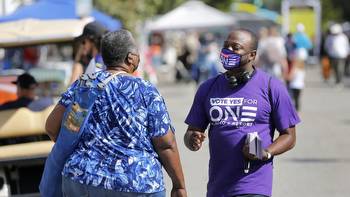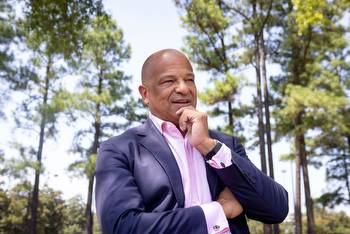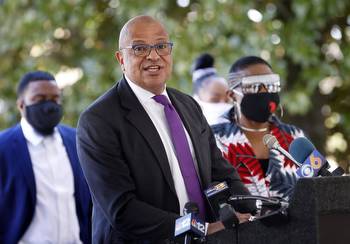Casino developers push back on critics
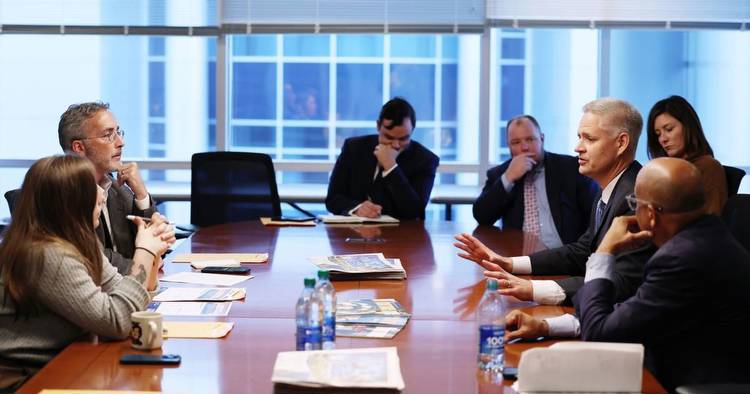
As Richmond prepares to vote on a referendum next month whether the city will go forward with a $562 million casino in the city’s South Side or not, the casino developers made their case to the Richmond Times-Dispatch.
Key casino representatives met with The Times-Dispatch editorial board earlier this week to address the project’s potential impact and mitigation regarding possible risks. They also said there are safeguards to the criticism and concerns that the casino will displace members of the community and lead to economic downfall for neighborhood businesses.
Churchill Downs and Urban One, equal-owners behind the project, compared the restrictions that they’re facing to the popular — but unregulated — skill games that some argue is a form of gambling.
“That is a tired argument for not pursuing this kind of development because this kind of development is going to go in this region,” William Carstanjen, Churchill Downs CEO, said. “I’ve been wondering where that (concern) has been in this city with all these gray games. They are flat-out illegal and they’re on every corner.”
A gray areaFrom local bars to convenience stores to gas stations, it is not hard to find a skill game on any given street. They popped up in Richmond and other cities across the state in 2019 marketed as a way to essentially play the slots, and last year, the state estimated a total of 9,000 in the state.
By 2020, the General Assembly began to craft and pass legislation barring them from stores as unregulated gambling machines. Company operators pushed back claiming that the element of skill keeps it from being considered gambling.
Essentially, the machines operate like digital slot machines. Once the wheel is spun, folks can click on the ones they would like to keep and which to keep spinning. The problem lies with the fact that games are programmed to give winning numbers a small percentage of the time offering the illusion of skill.
While the state pushed against them citing them as unregulated and unstudied, businesses pushed back citing them as a massive revenue loss. A compromise was initially put in place which imposed a $1,200-per-machine, per month tax that was set to generate $130 a million a year in taxes before ultimately banning them entirely.
Following a slew of court battles and injunctions, the Virginia Supreme Court reinstated the state ban after vacating a lower court ruling last week.
Two sides of the same coin“That is where you see no programs, no tax revenue, no jobs, no reporting, no information whatsoever about what is going on and what’s happening in those facilities,” Carstanjen said.
According to a 2022 Joint Legislative Audit and Review Commission, the estimated total yearly wagers placed on skill-based machines tallied $2.2 billion with a per-day win rate of $152.
While these also pose a problem that requires further state interference, those opposed to the project point out that the casino developers, as they fall under the gambling umbrella, could create problems and do not negate the casino’s potential harm to surrounding communities.
Urban One CEO Alfred Liggins III argued the project will be a net win for South Side and the city as a whole, largely citing its influence in the community as a tourist attraction.
“People say that the South Side needs grocery stores, and they need other amenities. Well, grocery stores come into communities where there’s income to be able to support commerce. This is going to create an economic hub that is going to create jobs,” Liggins said. “If we don’t build this there, nothing else is going to get built there.
“There’s nothing there now. It’s a hundred acres of industrial track. It’s economically impossible for this project to prey on those people that your opponents are talking about because it just doesn’t work.”
According to the U.S. Census data, there are approximately 1,500 people who live within a 1.1 square mile of the proposed site and an additional 5,000 within a 3-mile radius.
Ultimately, the decision will lie with voters this November. If the project fails for the second time, Liggins said he believes it will be out of his company’s and the city’s hands, and the state will determine where the next proposed casino will be decided on.
“I think that this project will go somewhere else,” Liggins said.
As the referendum nears, its long-lasting effects and the developers’ high-stakes strategy has been the subject of public debate.
Churchill Downs and Urban One have launched an unprecedented $8 million local referendum campaign specifically targeting the South Side where the proposed casino will make its home, and its critics have likened to a David versus Goliath battle.
It’s latest initiative, led by the representing union Unite Here in which the project gave $800,000, to provide free Uber rides for early South Side voters. After casting their ballot, they are offered a free meal from a food truck on site.
Studies point out that there are potential pitfalls.
A previous bipartisan Gambling Impact Commission found that 80% of gambling revenues are gambling losses from households with less than $50,000 of income. The current proposed site, at the intersection of Walmsley Boulevard and Commerce Road, is in an area in which the reported average income is well below the poverty level, according to U.S. Census data.
Additionally, a 2005 University of Buffalo study found that communities within 10 miles of a casino have more than double the rate of excessive gambling problems.







